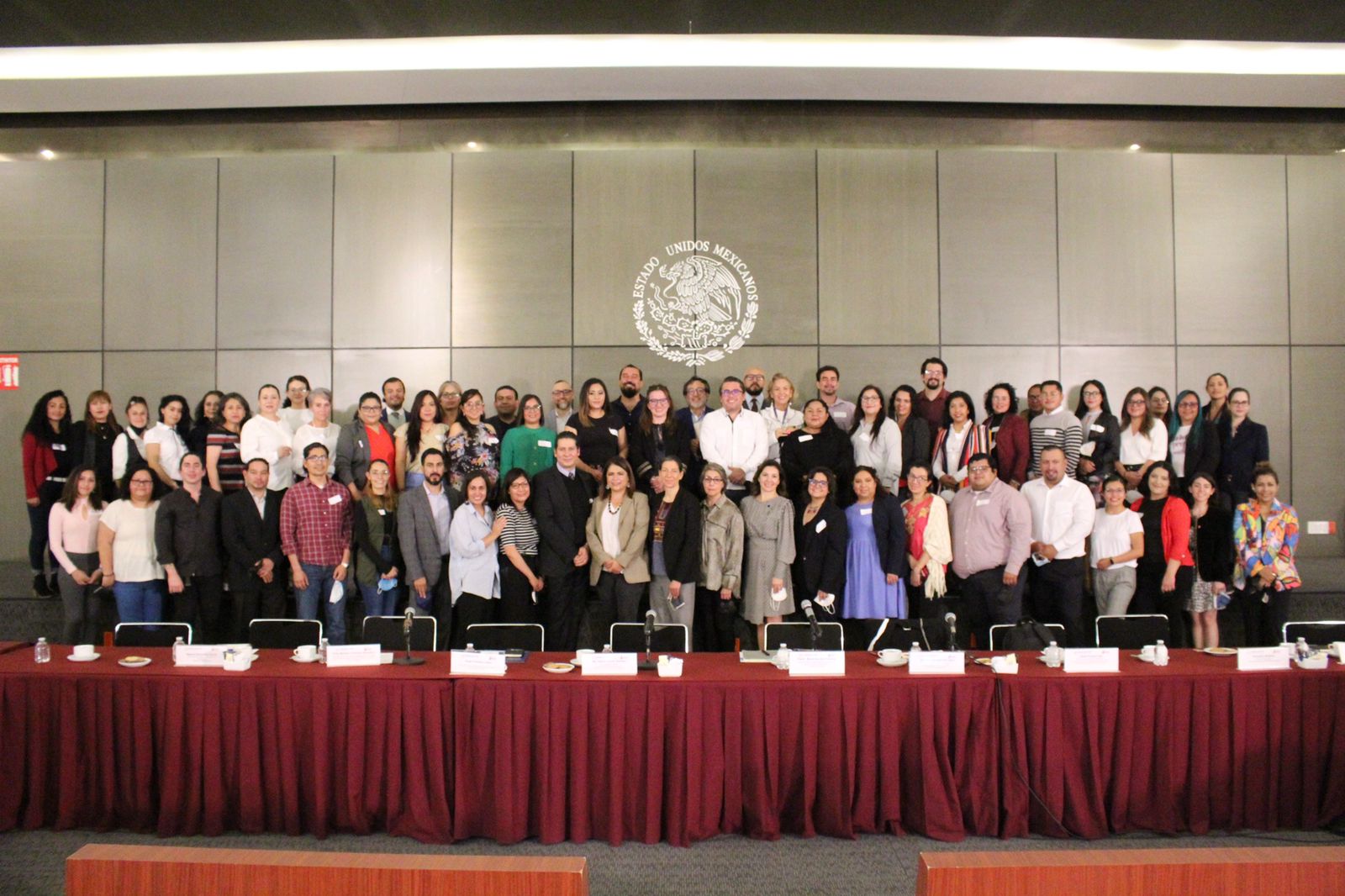This was the purpose of a workshop entitled 'Evaluation tools for actions of re-education for aggressors against women in Mexico'.

Comisión Nacional para Prevenir y Erradicar la Violencia contra las Mujeres (CONAVIM)
The Ministry of Health, through the National Centre for Gender Equity and Reproductive Health (CNEGSR) of Mexico and in close collaboration and with technical and operational support from the EuroSociAL+ Programme for Social Cohesion in Latin America and the National Commission to Prevent and Eradicate Violence Against Women (Conavim) , in a joint effort to organise intersector actions to apply strategies aimed at men who commit gender-based violence and seeking continuous updating on the matter, held the IMPACT Scale Workshop: Tools for Monitoring programmes aimed at Men who commit Gender Violence
The purpose of the initiative is to increase actions against gender violence based on experiences and lessons learned by other countries in the evaluation of the effectiveness of interventions with men who commit acts of violence, and to assess the feasibility of using the tool called the Domestic Abuse Programme Impact Monitoring Toolkit in Mexico.
The general director of the CNEGSR, Karla Berdichevsky Feldman, told national and international experts working with men who commit such acts of violence that it “is a critical problem” that requires immediate attention from the three levels of government.
She said that gender violence is a high priority issue not only for the Ministry of Health but for the entire government, which requires more intensive, evidence-based work. The workshop was an opportunity to add to the body of scientific knowledge and a tool to steer and strengthen public policies and programmes. She stressed that scientific evidence is essential for devising public policies and health interventions that often cannot be evaluated with the necessary rigour to determine “where we are investing public money”.
She explained that the inter-institutional and intersector workshop to prevent and address gender-based violence aimed at strategic groups is included in the agency’s Specific Action Programme for Sexual and Reproductive Health.
The evaluation tool called the Domestic Abuse Programme Impact Monitoring Toolkit scale has been applied since 2010 based on an intervention designed by the National Institute of Public Health, to assist women who have experienced moderate violence from their partners and from men guilty of these offences, whether or not they cohabited.
Through this strategy, workshops are provided for women who have experienced moderate partner violence, to enable them to identify and use institutional, community, family and personal resources that allow them to fully participate in public and private life. Men who commit moderate violence against their partner are re-educated to stop these crimes against women in institutional, community, family and personal spheres, with the purpose of enabling them to fully participate in social and private life.
The Re-education Programme for victims and perpetrators of intimate partner violence consists of 25 sessions of 2.5 hours at the facilities of the state health services. The sessions are programmed in an agenda that includes sexist culture, violence as a public health problem, human rights, social construction of masculinity, domestic work, family violence, parenthood, body work, sexuality and self-care.
At the beginning of the workshop, the head of the National Commission to Prevent and Eradicate Violence against Women (Conavim), Fabiola Alanís Sámano, advocated for a change in human relationships to break down the cultural divide between men and women. The national commissioner emphasised the need for promoting a new morality focused on non-violence and equality between women and men, as well as respect, solidarity and inclusion to build a country in which women, girls and adolescents might live free of violence.
He pointed out that in January and February 2022, almost 32,500 perpetrators of violence against women in the country were registered in the National Data and Information Bank on Cases of Violence against Women (Banavim), 80% of whom were men. In 45% of cases they were the victims’ partners and in 25% they were former partners. The offences committed were related to sexual abuse, rape, harassment and family violence, among others.



